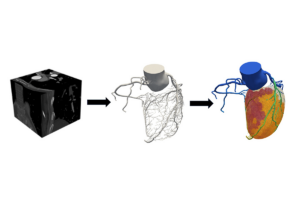During the State of the Union address by President Joe Biden, the needs of caregivers took center stage along with foreign policy, national security and economic challenges facing our nation. For caregivers, the challenges are huge, and it is clear that caring for dependent family members calls for new paradigms.
Few of us think much about caregiving until someone in our family needs it. Then we are usually caught unaware, not knowing where to turn for information or assistance. For most of us the challenge comes later when parents can no longer care for themselves. Most families, including the estimated 5.4 million children who provide for family members, face the problem with little preparation or forethought. All over the world, families assume caring for aging parents as a primary responsibility, according to the Organization for Economic Co-operation and Development.
In high-income countries, a smaller number of families can assume that burden, and in the U.S. it is increasingly relegated to either the federal or state governments through Social Security, Medicare and Medicaid. In the future, the government will be forced to play an even greater role in the care of dependent citizens. Individuals who are not fully independent will need the intervention and support of several formal and informal sources of support.
The mention of caregiving in the State of the Union address underscores the current shortage of high-quality, affordable community-based care services to support family caregivers. Most people do not realize that Medicare does not cover long-term care. It provides only a short period of care after discharge from the hospital. This is far short of what would be needed for an impaired elder to remain at home The national average cost of a semi-private room in a long stay home is $105,000 a year, according to a 2023 Genworth Cost of Care Survey.
The caregiver crisis persists across generations. What can a family do? A multifaceted approach is necessary and must involve all levels of government, as well as private and charitable organizations.
A federal executive order was recently issued that provides support for working family caregivers and incentives for small businesses. Congress was called upon to do its part to improve caregiver support for everyone and to create viable community-based long-term care options for the most vulnerable. The American Rescue Plan Act provided $37 billion to states and the District of Columbia to expand the home- and community-based care services funded by Medicaid. Texas, like many states, created programs that increased wages and offered bonuses for care workers and attendants ($10.60 a hour). Medicaid community-based care is critical, and home care waiting lists continue to grow.
In 2023, a federal executive order was issued specifically targeting coordination between medical care and community-based providers. This order helps to navigate the health care system and facilitates local implementation of the National Alzheimer’s Plan. A key feature involves training families on best care practices in dementia care.
Like other municipalities in the country, cities in Texas such as Austin are implementing these programs. They include expansion of services and outreach to ensure that people in need are aware of them. One example is Aging and Disability Resource Centers, a federal program that funds states to provide caregiver training, planning services in all 254 Texas counties. Nationwide, this program covers 70% of the population. Caregivers from working family would benefit from innovative approaches that balance domestic and work roles. A fresh initiative would offer child and older adult care at one location while providing intergenerational activities and respites from caregiving. This care model has been introduced in several places across Texas and elsewhere and will become more important in the future.
Now is time to begin planning and at least become aware of options and the realities of aging. Families and the communities they live in are going to face challenges for which they are very often unprepared and ill informed.
Jacqueline Angel is the Wilbur J. Cohen Professor of Health and Social Policy in the LBJ School of Public Affairs and a professor of sociology at The University of Texas at Austin.
Dr. Toni P. Miles is the Pope Scholar-in Residence at the Rosalynn Carter Institute for Caregivers and professor emerita at the University of Georgia.
A version of this op-ed appeared in the Dallas Morning News, San Antonio Express News and the Waco Tribune Herald.




